Israel-Hamas War: What happened on day 90?
Gallant: 'Hamas will not rule Gaza, and Israel will not rule Gaza' • Three missing Israelis were taken hostage in Gaza, bringing total to 136
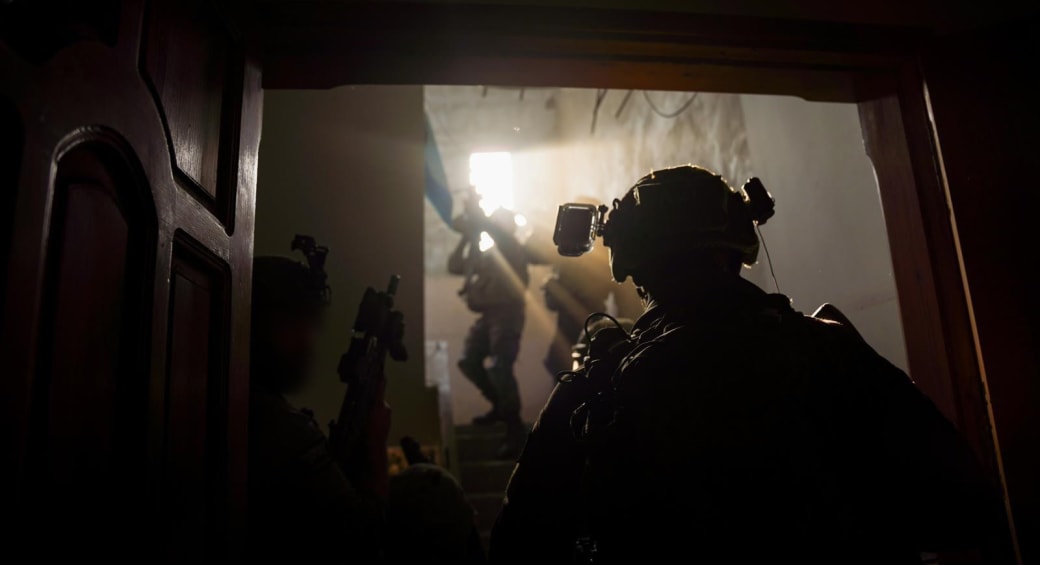

Israel's defense establishment plans for running post-war Gaza revealed
While The Jerusalem Post previously reported that top defense officials want local Gazan Palestinians to run Gaza once the IDF starts to withdraw, this was only part of the picture.
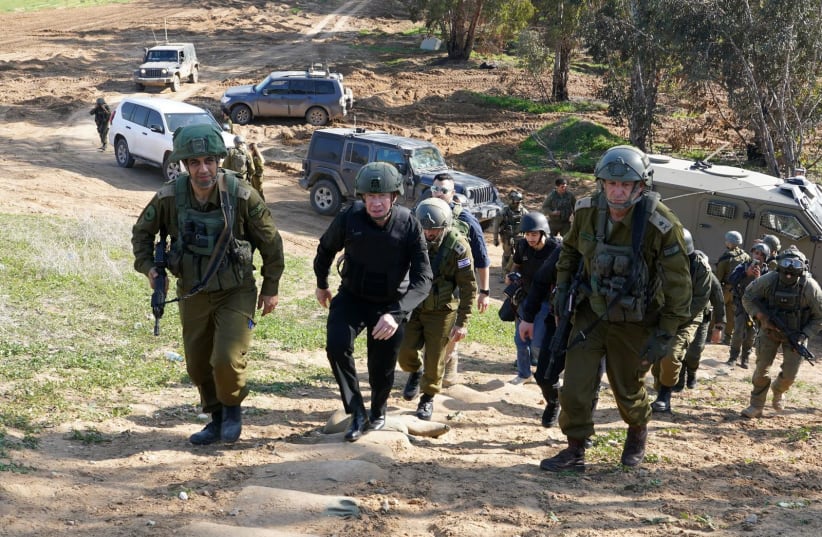
Defense Minister Yoav Gallant on Thursday presented his plan to the War Cabinet and the State Security Cabinet for Israel's security status once the war in Gaza is over.
The plan included the integration of existing Palestinian civilian leadership in Gaza into a more substantial local government. "Hamas will not rule Gaza," said Gallant in a press briefing before the meeting, "and Israel will not hold a civilian governorship over Gaza."
While The Jerusalem Post previously reported that top defense officials want local Gazan Palestinians to run Gaza once the IDF starts to withdraw, this was only part of the picture, with the remainder of the picture involving the US, the EU, and moderate Sunni allies, it can now be revealed.
Essentially, the concept of the defense establishment, which includes Defense Minister Yoav Gallant, is that eventually, more and more civil administration should be handled by local Gazans without Hamas loyalties themselves, but that this will not be possible all at once.
In some undefined transitional period, the IDF will retain broad security responsibility, including over the borders and with authority to conduct raids, but some hybrid mix of forces provided by the US, European allies, and Arab allies, such as the Saudis, Egypt, the UAE and others will assist with aspects of internal security and administration.
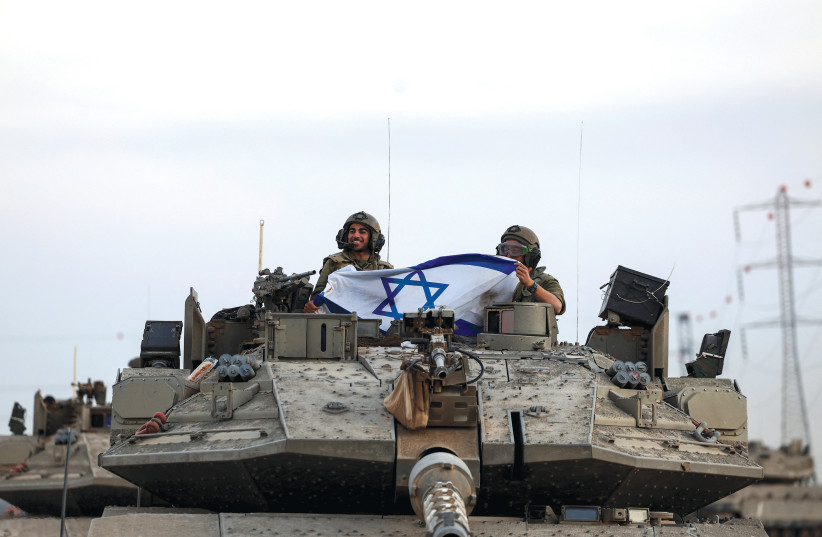
Only once the local Palestinian Gazans get their bearings, have more stable residences and lives, and appear ready to stand on their own if facing minor challenges from remnants of Hamas and other terror groups would the international conglomerate of countries yield more management to the local groups.
Palestinian Authority's role to be minimized
The defense establishment and Gallant also do not completely disqualify the Palestinian Authority from playing some role, though the defense minister would prefer to minimize its role or only give it a role if aspects of its policies toward Israel improve.
To date, Prime Minister Benjamin Netanyahu has avoided public debates on these issues and has mostly talked about what he is against: Such as no involvement for the PA.
However, the US, the EU, and the moderate Arab states may not agree to participate and provide funding, which could leave Israel stuck if Jerusalem does not show flexibility.
Further, Israel may be going to elections, in which case officials like Benny Gantz, who appear more open to the PA and to global suggested solutions in general, may end up deciding the issue.
It is also unclear how Israel will select Gazans who are truly disconnected from Hamas after the terror group's 16-year rule, but Gallant is confident that groups can be found or formed.
Go to the full article >>IDF dismantles Shifa Hospital tunnel complex without damaging hospital
The tunnel under Shifa Hospital spanned over 250 meters, led to significant Hamas terrorist infrastructure and was a base for carrying out terror operations.
A terror tunnel complex located near Shifa Hospital in Gaza was dismantled by the IDF without causing any damage to the hospital or surrounding buildings, the military announced on Wednesday.
In late November, the Hamas terror tunnel route excavated under the Shifa Hospital and exposed by the IDF was dismantled by the soldiers of the Yahalom Unit together with special forces.
Despite the activities to dismantle the expansive underground tunnels, the hospital building above ground was not damaged, and humanitarian services in the hospital were able to continue.
The tunnel under Shifa Hospital spanned over 250 meters, led to significant Hamas terrorist infrastructure and was a base for carrying out terror operations. Hamas deliberately developed its subterranean tunnel infrastructure beneath the hospital and connected it to nearby tunnel shafts in order to conduct its activities freely and in disguise underground.
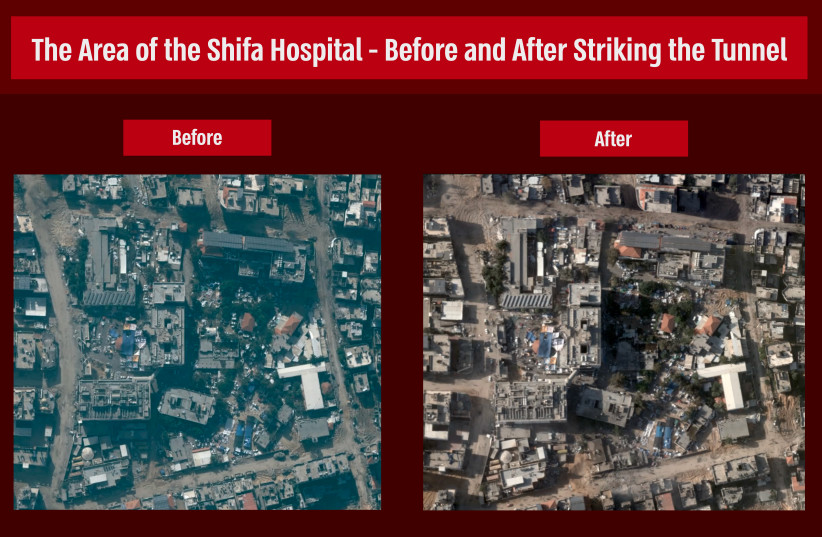 Graphic showing before and after images of the Shifa Hospital complex (credit: IDF SPOKESPERSON'S UNIT)
Graphic showing before and after images of the Shifa Hospital complex (credit: IDF SPOKESPERSON'S UNIT)
Hamas destroyed documents
 Graphic showing before and after images of the Shifa Hospital complex (credit: IDF SPOKESPERSON'S UNIT)
Graphic showing before and after images of the Shifa Hospital complex (credit: IDF SPOKESPERSON'S UNIT)Hamas terrorists took measures to prepare for the IDF's November raid of Shifa Hospital in Gaza by destroying documents and transferring hostages to an alternate location, according to intelligence documents obtained by The New York Times.
The report said that US intelligence found that Hamas destroyed technology and documents crucial to the organization's operation, with Shifa Hospital as a home base.
US intelligence sources emphasized that Hamas and the Palestinian Islamic Jihad used the hospital as a command center for terrorists in the field fighting against Israeli forces. This intelligence assessment was conducted after Israel insisted that Hamas had built a huge military compound under the hospital – which, according to the report, had become a "legitimate military target for Israel."
Go to the full article >>Could Israel's military tactics in Gaza give Hamas a chance to rebuild?
Despite Israeli military success against Hamas, the transition to the lower-intensity "stage 3" could allow the terror group the chance to regain its military foothold in the Strip.
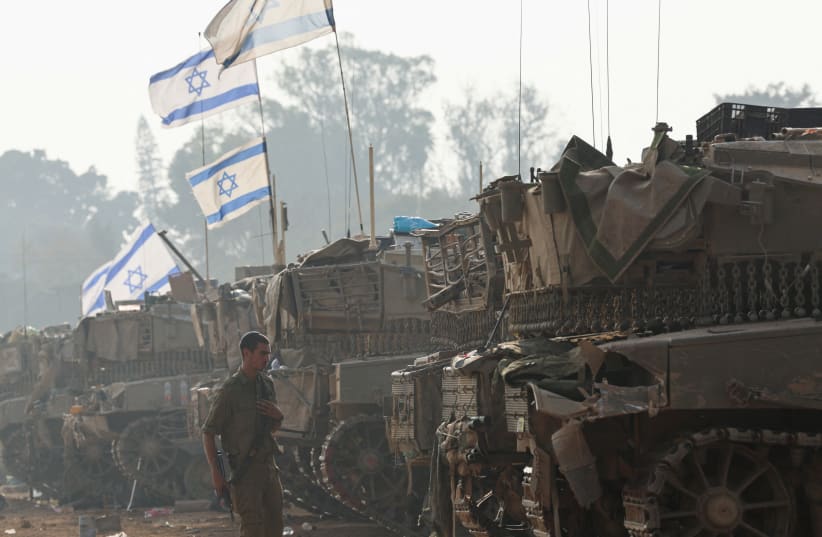
As Israel transitions from "stage 2" of the war against Hamas to the longer "stage 3", experts warn that a reduction in the intensity of Israel's campaign could allow the terror organization to rebuild itself militarily in Gaza.
The Institute for the Study of War (ISW) and the Critical Threats Project, American organizations analyzing the IDF's war in Gaza, released an update to the ongoing Israel-Hamas War on Tuesday, stating that "Israeli forces are transitioning to the third phase of their operations in the northern Gaza Strip, which will very likely enable Hamas to reconstitute itself militarily.
"Israeli forces have degraded several Hamas units and rendered others combat ineffective, particularly in the northern Gaza Strip, since the beginning of the clearing operations," the report continued. "But Hamas’s military forces are neither defeated nor destroyed at this time. Decreased Israeli pressure would, in fact, allow Hamas to rebuild its military capabilities and infrastructure."
According to the overall plan of the IDF for the war against Hamas, the third phase includes what has been defined as "raids and remote attacks." The IDF essentially has operational control over most of the major settlements in Gaza, although fighting still continues in and around Khan Yunis in the south. As part of "stage 3", raids based on early intelligence will be carried out, and remote attacks will destroy infrastructure in areas where IDF combat troops have finished fighting. 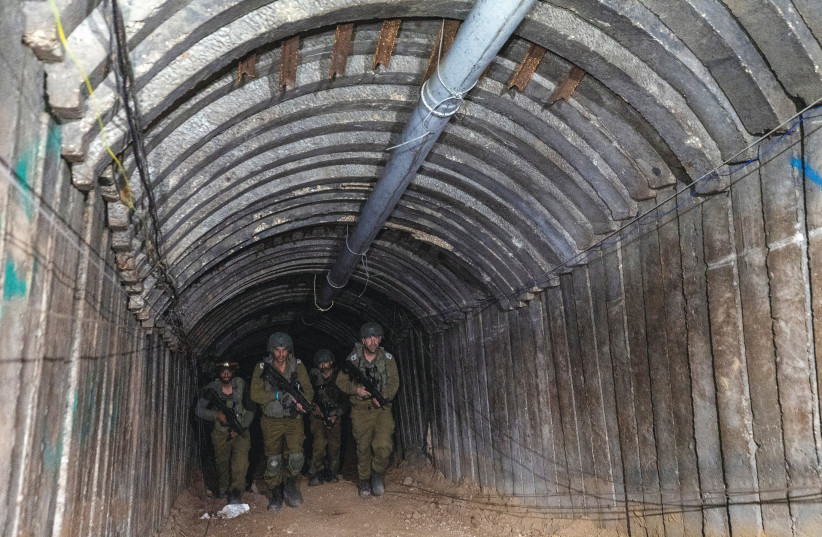
To this end, earlier in December, the IDF's Division 252 was released from service for the time being, having completed its mission in northern Gaza.
Additionally, it was announced on December 31 that the 551st and 14th Brigades would also be released from active duty.
This scale-back, combined with the success in removing a large part of Hamas's threats to Israeli civilians, is part of the transition to "stage 3."
Much of Hamas's military infrastructure and leadership has been decimated since the Israeli ground invasion of Gaza. Most Hamas military and governmental complexes are now in IDF hands, and the military successfully reduced the firing of rockets from hundreds a day at the beginning of the conflict to minimal. By the end of December, the daily average was minimal.
There has also been much talk in Israel of "the day after" the war, with options including Israeli military governance, a Palestinian Authority-led government, or various other options. Hamas has also declared that it will be needed to be involved in any post-conflict governance of the Strip. Last week, Prime Minister Benjamin Netanyahu reaffirmed that, "In order to talk about the day after, it needs to get here first. Only the IDF will have control."
"Obviously, the Strip will be demilitarized. There will be no power except Israel," said Netanyahu. The prime minister also noted that the IDF had eliminated over 8,000 Hamas terrorists.
Israel's military failures give Hamas a chance
However, Israel's failure to capture or kill the main leaders of Hamas in Gaza, Yahya Sinwar and Mohammed Deif, plus the continued failure to locate and return the 133 remaining hostages in Hamas's hands, has led to fears that the longer the situation continues, the less successful the IDF will be overall. The longer Sinwar is able to continue avoiding detection in the subterranean tunnel complex Hamas has under Gaza, allegedly accompanied by several of the Israeli hostages, the longer he is able to direct the campaign against Israel.
The ISW and Critical Threats report also notes that despite Israel's success in killing many Hamas military commanders, there is no reason that successors should not have been planned and developed.
"Hamas maintains a conventional military structure, meaning that it should be able to quickly replace commanders who have died in the war," the report states. "Several recently killed Hamas battalion and brigade commanders had led their units for many years, suggesting that they had the ability and time to develop successors to take their place. Such reconstitution is inconsistent with the stated Israeli war aims, which are to destroy Hamas militarily and politically."
Ultimately, it would appear that while Israeli success in removing Hamas from power appears inevitable, its stated goal of destroying the terror may be far from certain, and the longer the military campaign goes on, the better the chance Hamas will have to survive and rebuild.
Yonah Jeremy Bob contributed to this article.
IDF proof: Hamas, PIJ use young children for Gaza terror activities, incitement
The IDF published on Wednesday collated photos and videos showing children undergoing military training, posing with weapons, and even simulated drills in a mock tunnel.
A large amount of evidence has been collected as part of the IDF's ongoing military campaign against Hamas in Gaza proving the indoctrination of children from a young age to hate Israel and Jews, as well as theoretical and practical military training.
The IDF published on Wednesday collated photos and videos showing children undergoing military training, posing with weapons, and even simulated drills in a mock tunnel. 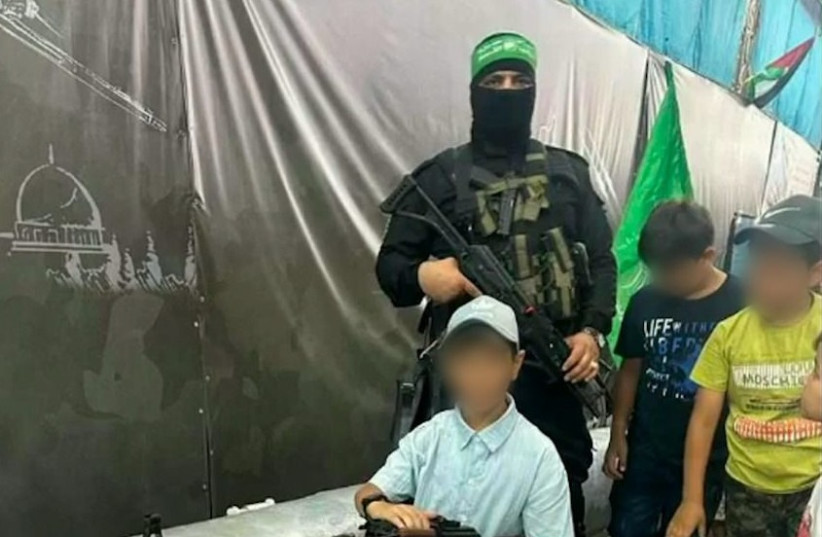
It is also well documented by international organizations that Palestinian textbooks used in Gaza's schools, including those run by international agency UNRWA, contain antisemitic and anti-Israel tropes, and over the 16 years Hamas has been in power, hundreds of thousands of children have enrolled in the terror group's summer camps, where children are also taught learn to shoot weapons, fight against tanks and even kidnap soldiers.
These camps are known as the early stages of training for Hamas's military wing, the al-Qassam Brigades. ID cards collected by the IDF also show children's membership in Hamas and Palestinian Islamic Jihad.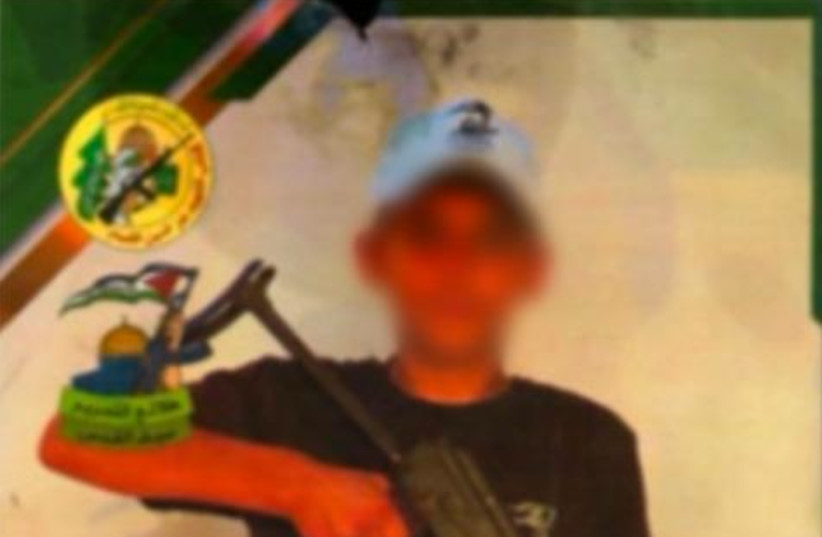
Hamas continues using minors during war
Even during the ongoing war, when holding such training camps is impossible, Hamas continues to utilize those underage for various tasks, including sending children to deliver both messages and ammunition. Prior intelligence from the IDF of one Hamas commander in the "Zeytoun" Battalion has demonstrated the logic behind Hamas's use of children in war beyond indoctrination.
Children are used to transfer ammunition with the understanding that the IDF will not harm them due to the Israeli military's compliance with international law. Examples include the transfer of explosives in vegetable bags by children in Gaza and the sending of children to combat zones after attacks in order to assess the damage and report it to Hamas terrorists who are hiding in shelters.
Israeli hostages who were released from Hamas captivity describe how some of them were also kept in the family homes of Gazans, which included children, who helped to attend to the hostages.
Hamas is also known to use children's schools and playgrounds as military infrastructure, including to hide weapons or as the entrance to tunnel shafts.
In December, Israeli soldiers located and exposed a Hamas terrorist ambush at the entrance to a tunnel shaft, using dolls and children's backpacks in an attempt to lure soldiers in hopes of finding hostages.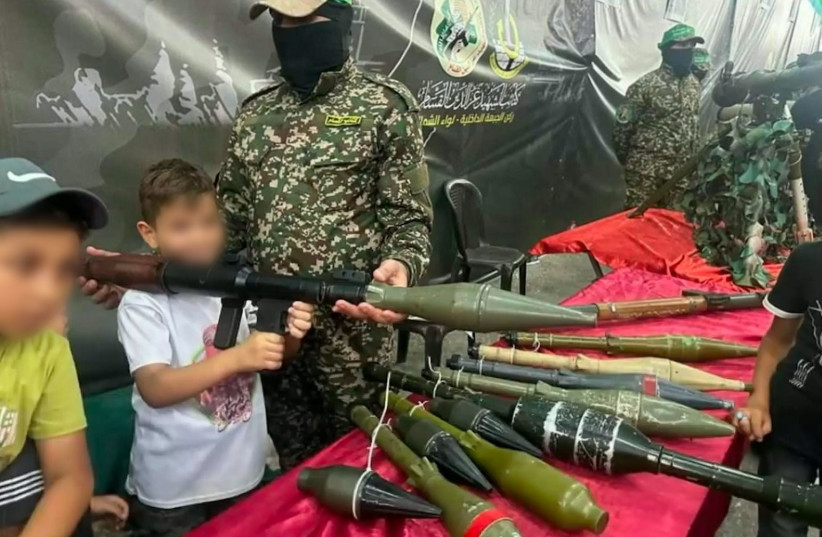
Hamas hostage Sahar Baruch killed during IDF rescue attempt
The IDF neither confirmed nor denied whether he was killed by the IDF or during the rescue attempt itself.
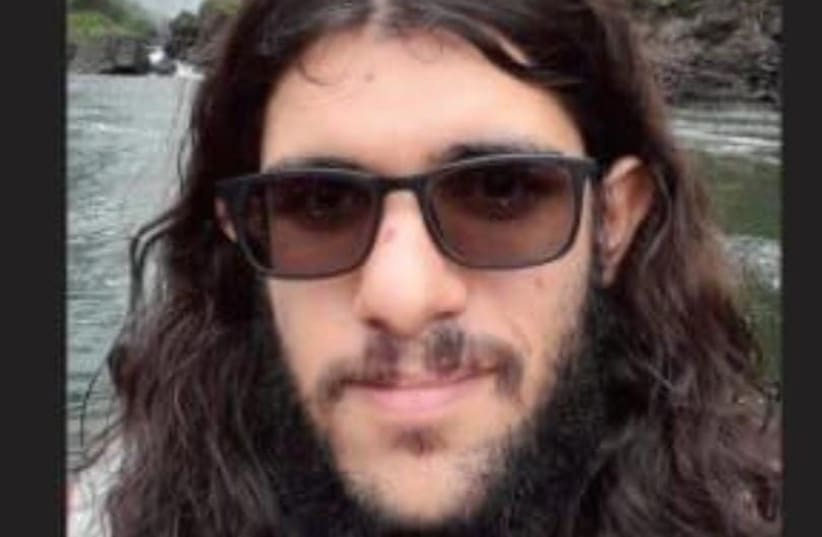
Hamas hostage Sahar Baruch, 25, was killed on December 8 in connection with an IDF rescue attempt, the military revealed Wednesday.
The IDF neither confirmed nor denied whether he was killed by the IDF or during the rescue attempt itself.
However, the IDF acknowledged that within a day of the rescue attempt, Hamas had killed him.
Previously, Baruch's death had been announced on December 9 as having occurred while in Hamas's custody. He had been kidnapped on October 7 during Hamas's invasion of southern Israel but was kept alive for around two months.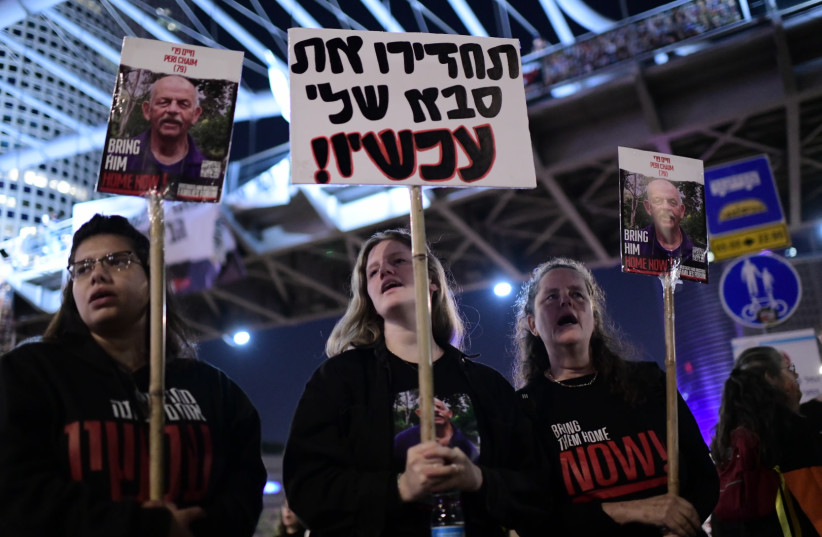
IDF refuses to state how Baruch died
The latest revelations came after the IDF acquired new intelligence findings during recent operations and investigations and after the military updated the family.
The IDF did not explain why it could not declare whether Baruch was killed by Hamas or by accident by friendly fire.
To date, the only Israeli hostage rescued by an IDF operation has been Ori Megidish, with 81 others being returned in a hostage deal in November.
Around 130 people remain captives of Hamas.
Go to the full article >>US 'not seeing acts of genocide' in Gaza, State Dept says
Israel has called the genocide case "baseless" and says Hamas is using Palestinians as human shields and stealing aid from them, accusations Hamas denies.
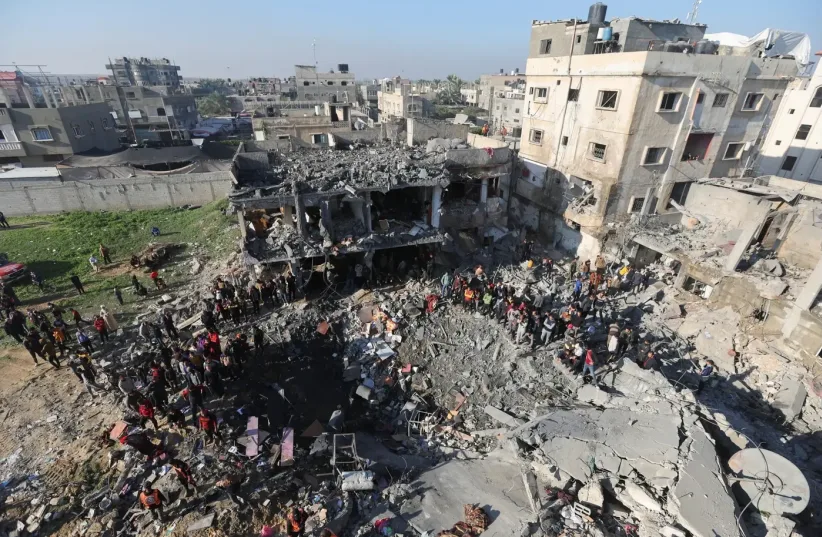
The US has not observed acts in Gaza that constitute genocide, State Department spokesperson Matthew Miller said on Wednesday, after South Africa launched genocide proceedings at the International Court of Justice over Israel's military operation in the Palestinian enclave.
"Those are allegations that should not be made lightly ... we are not seeing any acts that constitute genocide," Miller said at a regular news briefing. "That is a determination by the State Department," he added.
He had been asked about South Africa's request on Tuesday that the World Court issue an urgent order declaring that Israel was in breach of its obligations under the 1948 Genocide Convention.
South Africa launched proceedings against Israel
The court has scheduled public hearings for Jan. 11 and 12 on South Africa's request. Israel said it would defend itself from the charges.
Miller said he did not have any assessment to share on whether war crimes or crimes against humanity have been committed.
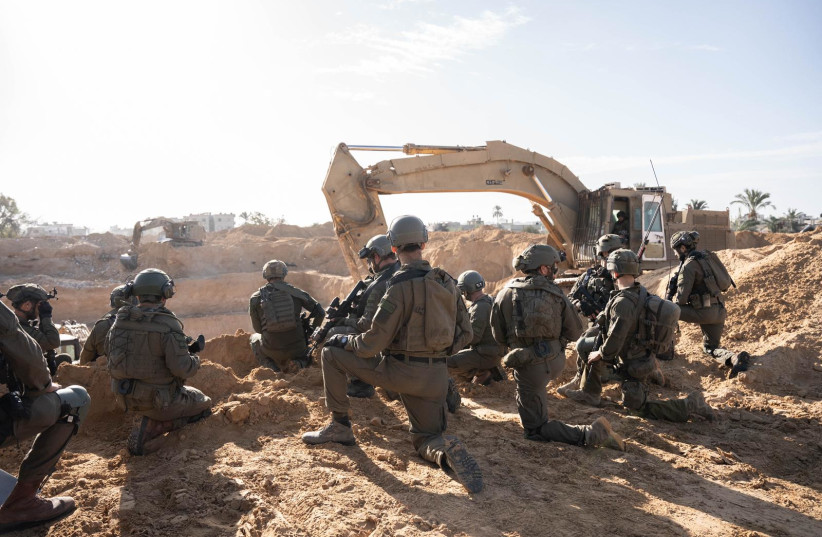
Washington on Tuesday slammed two Israeli ministers for advocating resettlement of Palestinians outside of Gaza, but said Israel had assured US officials that their statements do not reflect its policy.
US officials have said too many Palestinians have been killed in the conflict. They have urged Israel - which Washington provides with weapons - to do more to protect civilians.
The war was triggered by a cross-border Hamas assault on Israeli towns on Oct. 7 in which 1,200 people were killed and some 240 hostages taken back to Gaza.
The total recorded Palestinian death toll from Israel's offensive had reached 22,313 by Wednesday, the Hamas health ministry said.
Israel has called the genocide case "baseless" and says Hamas is using Palestinians as human shields and stealing aid from them, accusations Hamas denies.
Go to the full article >>US: We have no reason to believe Israel assassinated Arouri
He spoke after Hezbollah leader Sayyed Hassan Nasrallah blamed Israel for killing Arouri in a drone attack.
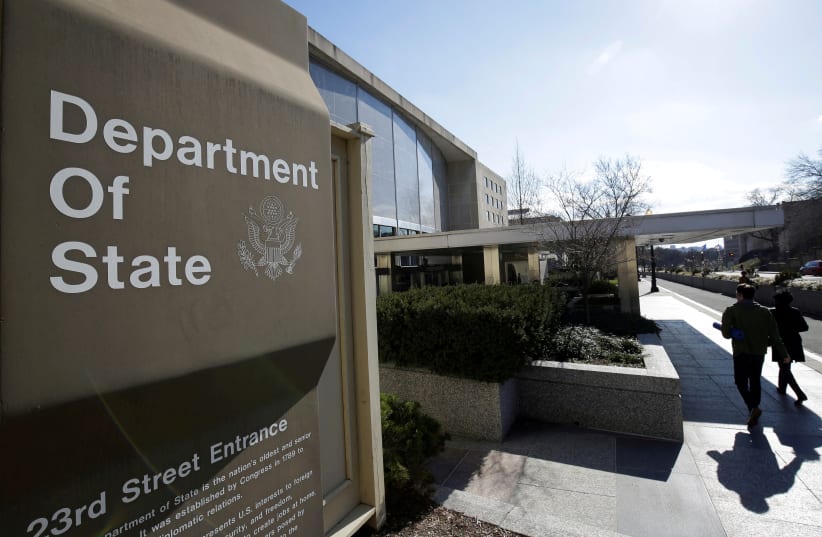
The United States does not have any reason to believe that Israel assassinated Hamas deputy leader Saleh al-Arouri in Beirut, State Department spokesman Matthew Miller said Wednesday.
“The US was not involved in any way, and any suggestion to the contrary is ridiculous,” he told reporters in Washington. “We have no reason to believe that Israel was involved in this explosion.”
“We have no information to suggest that they were,” Miller said, adding that US and Israeli officials speak multiple times a day.
He spoke after Hezbollah leader Sayyed Hassan Nasrallah said Israel had killed Arouri in a drone attack.
The US had not received information about a potential strike, Miller said.
Arouri’s assassination comes amid a continued push by the US, France, and others in the international community to prevent an all-out war between Israel and Hezbollah.
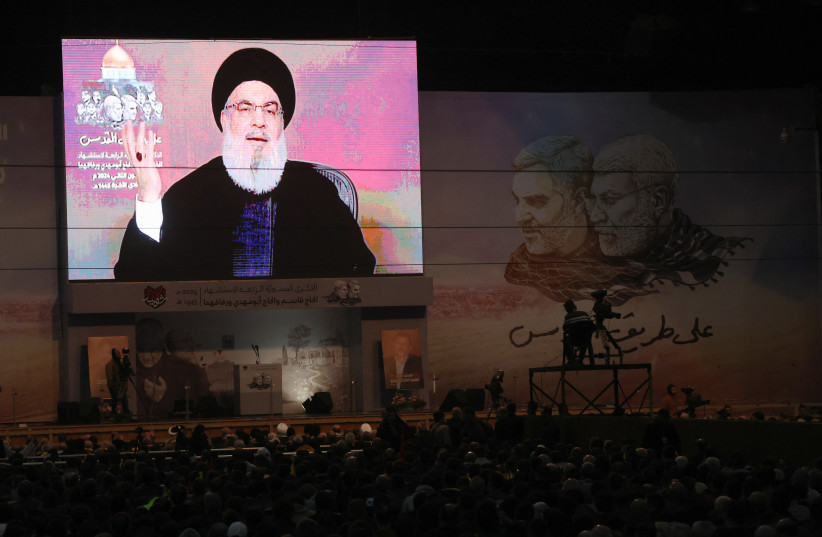
US: Escalation is in no one's interest
The US has sent messages to allies, and even those with whom it does not have direct relations, saying that “it is in no one’s interest, not in the interest of any country in the region and the world, to see this conflict escalate any further than it already is,” Miller said.
The US has taken “deterrent steps and diplomatic steps” to deliver that message, he said.
“It is not in Hezbollah’s interest, just as it is not in Israel’s interest to escalate this conflict in any way,” Miller said.
As part of its efforts to contain the conflict on Israel’s northern border, US special envoy Amos Hochstein is expected to visit Israel, possibly as early as Thursday.
Hezbollah and Hamas, however, have blamed Israel for the assassination, which could complicate efforts by Egypt and Qatar to mediate a hostage deal.
On Wednesday, Mossad Director David Barnea said he was committed to “settling the score” with Hamas.
“Let every Arab mother know that if her son took part, directly or indirectly, in the October 7 massacre, his blood is forfeit,” he said.
Ashraf Abouelhoul, managing editor of Egypt’s Al-Ahram daily and an expert in Palestinian affairs, said Arouri’s killing “may push Hamas to harden its stance so it doesn’t look as if it is bowing under pressures or threats of more assassination.”
On Tuesday, Riyadh-based Al-Arabiya news channel said Hamas had broken off talks in response to the assassination.
An Israeli official on Wednesday said as long as Qatar has not announced that talks over the release of hostages held in Gaza have broken off, then optimism was possible.
Israel has not claimed responsibility for the attack, even though it has sworn that all Hamas leaders are “dead men” and that it plans to assassinate them, the official told reporters.
Miller said the US would “continue to engage in quiet conversations behind closed doors to try and achieve the release of hostages.”
“Hamas knows the terms that are on the table,” he said.
Hamas and other armed terrorists seized some 250 hostages during the October 7 massacre. Since then, 110 have been released, and the bodies of 11 have been returned to Israel. An estimated 129 hostages remain in Gaza, including six who hold American citizenship.
Reuters contributed to this report.
Go to the full article >>Israel-Hamas War: What you need to know
- Hamas launched a massive attack on October 7, with thousands of terrorists infiltrating from the Gaza border and taking some 240 hostages into Gaza
- Over 1,200 Israelis and foreign nationals were murdered, including over 350 in the Re'im music festival and hundreds of Israeli civilians across Gaza border communities